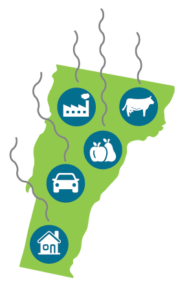|
Total Energy News – April 2021
|
|
|
Your Update on Vermont and National Energy News
|
|
|
Dear Network Member or Supporter,
|
|
|
Here in the EAN virtual offices we are busy doing the final writing on our Annual Progress Report for Vermont, tracking and supporting the work of the Network Action Teams, and continuing to refine our Emissions Reduction Pathways Model. We’ll have more to share on all of those fronts in the next couple months.
Please be in touch to let us know about other progress, opportunities, and events that we could share with EAN members and partners.
Sincerely,
The EAN Staff Team (Jared, Cara, and Mei)
|
|
|
Washington to ban sales of gasoline cars after 2030
Washington’s state legislature passed the “Clean Cars 2030” bill – if the governor signs it, this will be the earliest deadline for ending sales of gasoline cars in the US.
Car and Driver
|
|
|
How Britain’s ‘build back better’ plan went very, very wrong
There are many lessons to be learned from an unsuccessful home retrofit program in the UK, including the importance of consistent funding, industry involvement, and administrative planning.
Grist
|
|
|
Study: Few states and utilities ensure equity in EVSE
A recent ACEEE study analyzes the lack of equity mandates and considerations for US electric vehicle charging investment, and makes recommendations for improvements.
ACEEE
|
|
|
Understanding how Vermont accounts for greenhouse gas emissions
|
|
|
There has been a lot of conversation recently about different ways to track Greenhouse Gas emissions. We wanted to provide a quick overview of two different ways these emissions are tracked.
|
|
 In-boundary inventories (also sometimes called territorial or sector-based) aim to account for the emissions that occur within a state’s geographic boundaries. This is the type of inventory that nearly all countries, provinces, and states use, following Intergovernmental Panel on Climate Change (IPCC) protocol. In the case of Vermont, this means the emissions that are produced within the state of Vermont. When you see emissions totals in EAN’s Annual Progress Reports, they are from the official Vermont Greenhouse Gas Inventory, conducted by the Agency of Natural Resources, which is an in-boundary inventory. In-boundary inventories (also sometimes called territorial or sector-based) aim to account for the emissions that occur within a state’s geographic boundaries. This is the type of inventory that nearly all countries, provinces, and states use, following Intergovernmental Panel on Climate Change (IPCC) protocol. In the case of Vermont, this means the emissions that are produced within the state of Vermont. When you see emissions totals in EAN’s Annual Progress Reports, they are from the official Vermont Greenhouse Gas Inventory, conducted by the Agency of Natural Resources, which is an in-boundary inventory.
|
|
 Consumption-based inventories (CBEIs) aim to account for the emissions that occur as a result of people’s consumption, regardless of where, geographically speaking, those emissions occur. In the case of Vermont, this would mean the emissions that are caused by Vermonters consumption of goods and services. This inventory approach is most often used by corporations and cities. Some states, notably Oregon and Minnesota, have also produced CBEIs to supplement their in-boundary inventories. However, these CBEIs have not replaced OR and MN’s in-boundary inventories for purposes of their official State tracking and legal/policy compliance. Consumption-based inventories (CBEIs) aim to account for the emissions that occur as a result of people’s consumption, regardless of where, geographically speaking, those emissions occur. In the case of Vermont, this would mean the emissions that are caused by Vermonters consumption of goods and services. This inventory approach is most often used by corporations and cities. Some states, notably Oregon and Minnesota, have also produced CBEIs to supplement their in-boundary inventories. However, these CBEIs have not replaced OR and MN’s in-boundary inventories for purposes of their official State tracking and legal/policy compliance.
A key factor is to avoid double counting, which can happen when switching between the two types of inventories.
|
|
|
Member Profile
Burlington Electric Department
|
|
|
Burlington, the nation’s first city to source 100% of its electricity from renewable energy, has laid out a roadmap to achieve net zero energy (NZE) in the thermal and ground transportation sectors by 2030. Mayor Miro Weinberger and the Burlington Electric Department (BED) recently announced that Burlington is off to a good start toward meeting this ambitious goal, with fossil fuel use and greenhouse gas emissions in Burlington lower in 2019 and 2020 compared to the 2018 baseline, and greenhouse gas emissions down more than 15 percent in 2020 compared to 2018.
Post-pandemic, there is the possibility that emissions will rebound. However, this can be mitigated through updated telework and remote work policies by Burlington area businesses and organizations, additional walk/bike/transit efforts, and faster adoption of clean technologies such as heat pumps.
|
|
|
Vermont Climate Council Meetings
Don’t forget that all Vermont Climate Council meetings and subcommittee meetings are open to the public. The Climate Council pages on Vermont’s website includes information about meeting times and topics, as well as links to watch recordings of previous meetings, and a new public comments portal.
|
|
|
Summit on the Future of Vermont
The Vermont Council on Rural Development is hosting its Summit on the Future of Vermont, May 26 & 27, 1-5pm (virtual) – a state-wide conversation about the actions needed now to ensure a prosperous future. Come share your thoughts and join the partnership for action.
|
|
|
Vermont Long Range Transmission Plan
VELCO is hosting two virtual Public Meetings on the 2021 Vermont Long-Range Transmission Plan April 28th from 11am-1pm and May 5th from 5pm -7pm.
|
|
|
The Vermont Total Energy Ticker
|
|
|
Burlington voters stoke debate on path to cleaner heat
Almost 2/3 of Burlington voters want to give the city authority to regulate building heat sources, but the state legislature and governor need to sign off first.
Energy News Network
|
|
|
Vermont Electric Co-op to go carbon-free by 2023
VEC – the state’s largest member-owned electric utility – has pledged a 100% carbon-free power supply by 2023 to reflect customer demand for clean energy.
VTDigger
|
|
|
Governor Scott’s ARPA plan includes $200 million for climate
Governor Scott’s plan for $1 billion in federal COVID funds includes $200 million for climate along with funds for broadband expansion and affordable housing.
Seven Days
|
|
|
Have an upcoming event or news story to share? Let us know.
|
|
|
|
|
|




 In-boundary inventories
In-boundary inventories Consumption-based inventories
Consumption-based inventories


